Master Schema Therapy Training: A Guide to Comprehensive Certification Courses
Ready to dive into schema therapy training? Transform your therapy practice and cut to the chase with our definitive guide that lays out the essential steps to certification. Discover the practicalities of schema therapy, including workshops, key techniques, and the necessary commitment that paves the way toward becoming a certified practitioner. Right inside, you’ll find the concrete information you need to begin your journey in one of psychotherapy’s most in-demand modalities.
Key Takeaways
- Schema Therapy integrates cognitive-behavioral, attachment, and emotion-focused modalities to address complex psychological issues, focusing on reshaping early maladaptive schemas formed during childhood.
- To become certified in Schema Therapy, practitioners must undertake rigorous training and supervision, fulfilling ISST standards which include treatment case studies and recorded therapy sessions for evaluation.
- The Schema Therapy Training Center of New York facilitates comprehensive Schema Therapy training programs for both individual and couples therapy, with online learning platforms enhancing flexibility and worldwide access.
Unlocking the Potential of Schema Therapy
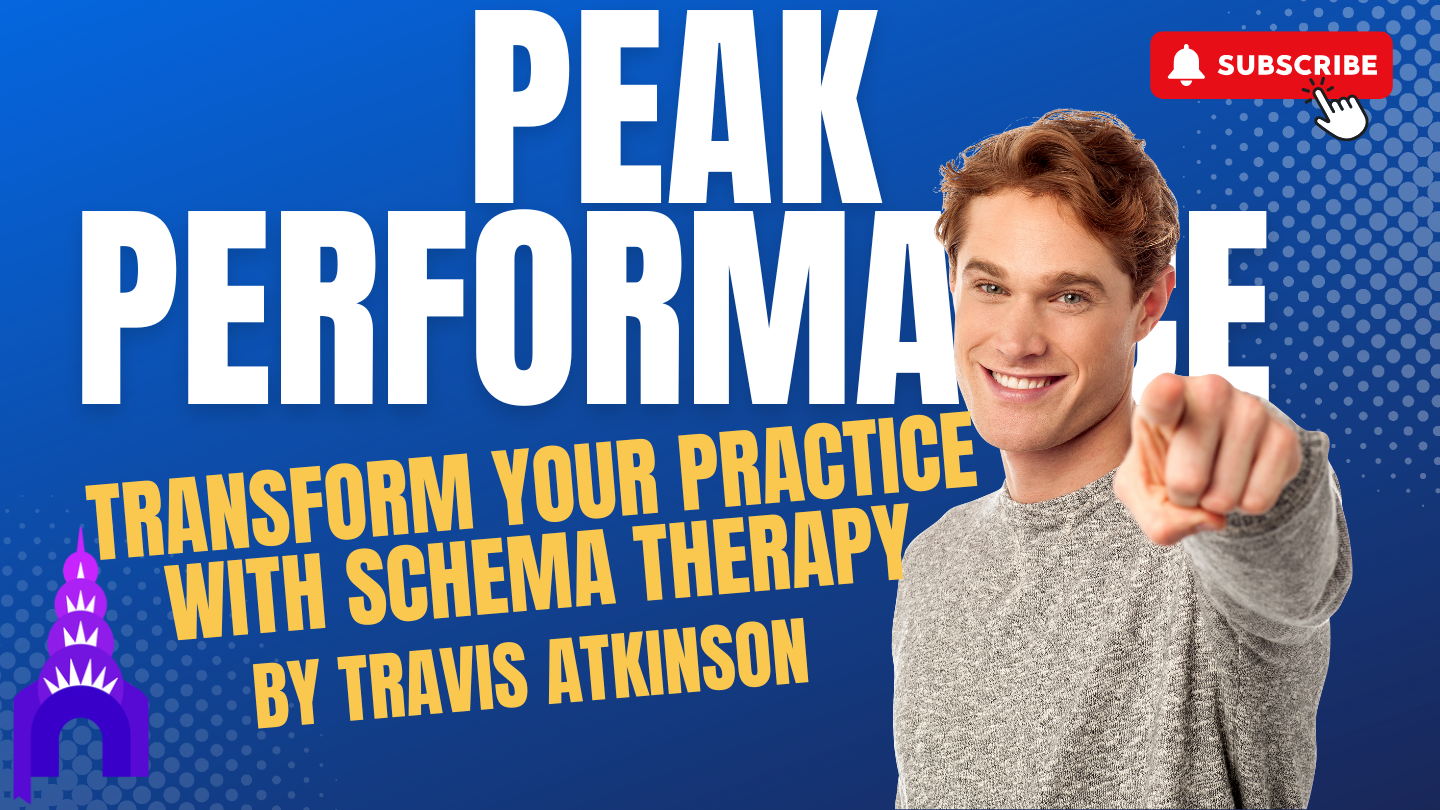
Schema Therapy, an innovative and multifaceted psychotherapy, redefines the boundaries of personal growth and psychological healing. At its core, Schema Therapy is the alchemy of cognitive-behavioral, attachment, and emotion-focused therapies, molded into a singular, potent form of ‘schema healing’. Renowned for its efficacy, Schema Therapy shines as a beacon of hope across the spectrum of psychological issues, notably chronic depression, relationship turmoil, and intricate personality disorders like borderline personality disorder.
The essence of Schema Therapy lies in its transformative approach, where early maladaptive schemas—deep-rooted beliefs and patterns established in childhood—are reshaped to foster positive behavior in adulthood. Dr. Jeffrey Young, the pioneer behind this methodology, recognized the limitations of traditional cognitive therapies and courageously charted a new course to address the complex psychological landscapes that many face.
This therapy is a journey of empowerment, where the threads of the past are woven into a tapestry of strength for the future.
The Foundations of Schema Therapy
At the heart of Schema Therapy are the schemas themselves: mental constructs that shape our self-perception, experiences, and interactions. This therapeutic approach is an amalgamation of diverse psychological theories—cognitive, behavioral, psychodynamic, Gestalt, and attachment models—melding into a unified framework for comprehensive treatment. The rich tapestry of Schema Therapy encompasses five broad schema domains:
- Disconnection
- Impaired autonomy
- Impaired limits
- Other-directedness
- Overvigilance and inhibition
Each category offers a unique lens to view and address individual struggles.
The therapeutic odyssey to transform your therapy practice begins with a meticulous assessment to identify the primary schemas and coping styles that exert the most significant influence on the client’s life. It’s a process that requires patience, a keen understanding of human psychology, and a commitment to peeling back the layers of the psyche to reveal the core of one’s emotional world. Embracing these foundations is the first step toward unlocking the transformative power within Schema Therapy.
Advanced Techniques in Schema Therapy to Transform Your Therapy Practice
Advancing through the Schema Therapy landscape, one encounters an arsenal of sophisticated techniques designed to dismantle long-standing schemas. Some of these techniques include:
- Cognitive strategies: These are employed to challenge and reframe deep-rooted beliefs.
- Behavioral techniques: Role-playing serves as a rehearsal ground for healthier responses to emotional provocations.
- Empathic confrontation: This technique offers clients a nurturing space to address unmet childhood needs.
- Limited reparenting: This technique allows clients to rewrite their emotional narratives within the boundaries of ethical and professional practice.
These techniques are powerful tools in helping individuals overcome the negative aspects of their schemas and lead healthier lives.
Incorporating neurophysiological insights, Schema Therapy leverages the brain’s innate plasticity, pairing it with the therapeutic relationship to reshape entrenched negative emotional patterns. It’s a process that requires a high level of expertise, as therapists guide their clients through the labyrinth of their psyche, fostering the development of adaptive behaviors and thinking patterns. Mastery of these advanced techniques is a testament to the therapist’s dedication and skill, and a beacon of hope for clients seeking transformation.
The Journey to Becoming a Certified Schema Therapist
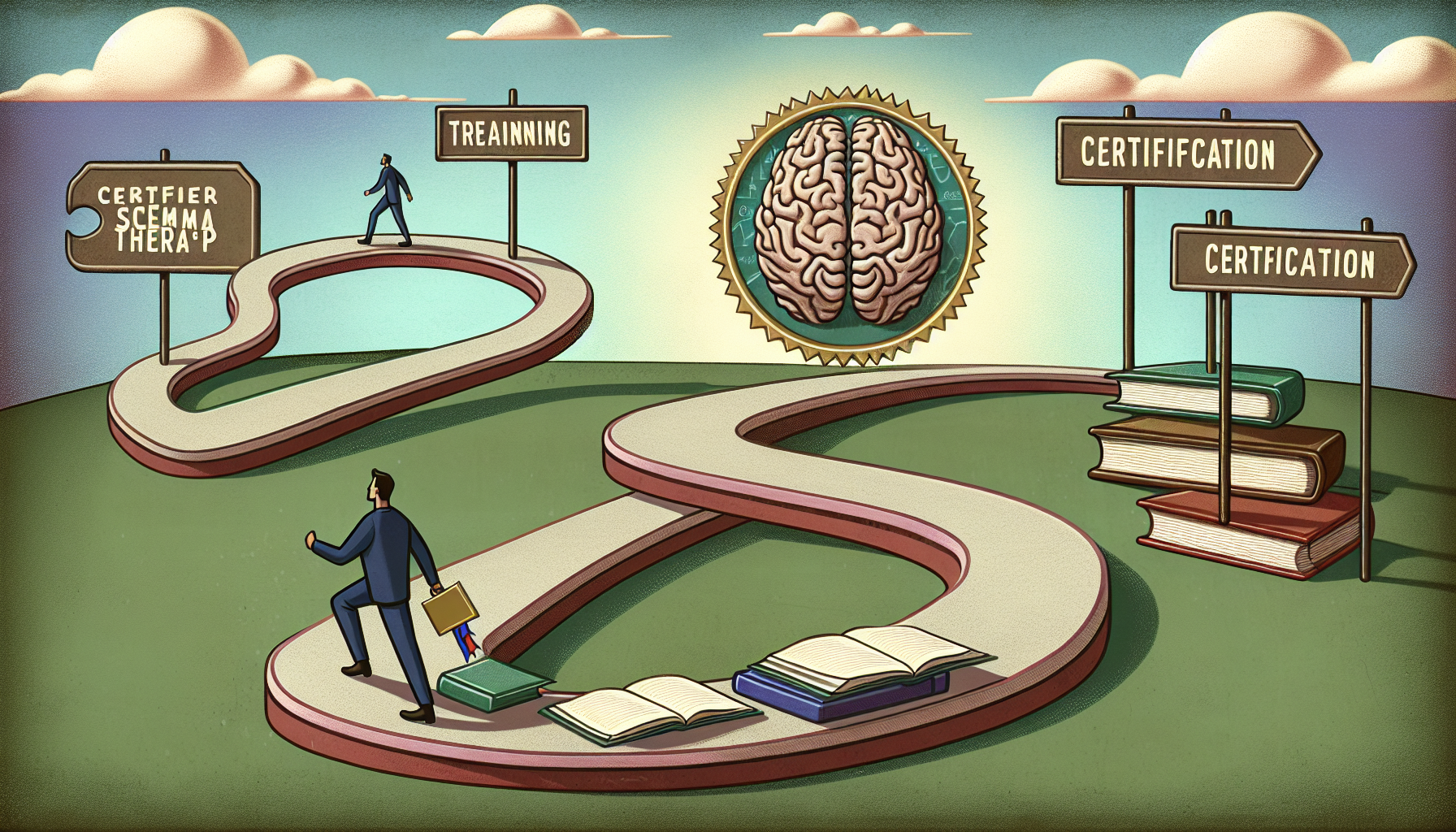
Embarking on the path to becoming a certified Schema Therapist is as rewarding as it is rigorous. The International Society of Schema Therapy (ISST) upholds a high standard for certification, ensuring that therapists are thoroughly equipped to practice this complex form of psychotherapy. The journey begins with an application process scrutinized by Regional or National Coordinators before reaching the ISST Certification Coordinator for the final review. The requirements are clear yet demanding: a minimum of 20 supervision sessions, treatment of at least two Schema Therapy cases, two recorded therapy sessions, and a meticulously crafted case conceptualization. For those aspiring to an advanced certification, the stakes are raised to at least 40 hours of supervision, a minimum of four treated cases, and four session recordings.
Since May 1st, 2019, the submission of a Schema Therapy Case Conceptualization Form alongside session recordings has been a mandatory step in the certification process, with specialty areas such as Group, Child-Adolescent, Couples, and Auxiliary Schema Therapy following their respective evaluation protocols. Earning the ISST certification is not merely a professional milestone; it’s a leap forward in a therapist’s career, offering recognition and validation of their expertise in Schema Therapy. It’s a journey that calls for dedication, skill, and a deep-seated commitment to the therapeutic craft.
The Certification Program Blueprint
The blueprint of the ISST certification program to transform your therapy practice is meticulously designed to ensure comprehensive training and evaluation within the realm of certification programs. Applicants are required to submit a range of documentation, including:
- The ISST application form with signatures
- A checklist of documentation
- Supervisor confirmation of supervision hours
- In-depth case conceptualizations with session summaries
This dossier of materials, all to be submitted within 30 days of the application, serves as a testament to the applicant’s dedication and readiness for certification.
The training courses offered by the Schema Therapy Training Center are not only approved by ISST but are also structured to meet the requirements for both Standard and Advanced Schema Therapist Certification. Specialized workshops, such as the 30-hour online training for Advanced Schema Couples Therapists, are part of the certification mosaic recognized by ISST. Upon successfully completing the training programs, participants are awarded a Certificate of Completion, a milestone signifying their advancement toward the prestigious goal of ISST certification. More than just a piece of paper, this certificate embodies the journey of growth and the accumulation of skills essential for Schema Therapy mastery.
Moreover, completing the online course opens doors to a wealth of resources and a network of like-minded professionals, further aiding development within the Schema Couples Therapy domain.
The Role of Supervision in Mastery to Transform Your Therapy Practice
The ascent to mastery in Schema Therapy is paved with hours of study, hands-on practice, and introspective reflection. Supervision holds a pivotal role in this ascent, acting as the crucible where skills are refined and professional competence is validated. Supervisors not only confirm the applicant’s hours but also provide a critical evaluation of their readiness to practice Schema Therapy at a high level. Certain workshops even offer the added benefit of being credited towards the required supervision hours, further facilitating the certification journey.
This framework of supervision ensures that the therapist not only acquires the necessary knowledge but also hones the skills to apply Schema Therapy principles effectively.
Training Programs Breakdown: Individual vs. Couples Schema Therapy
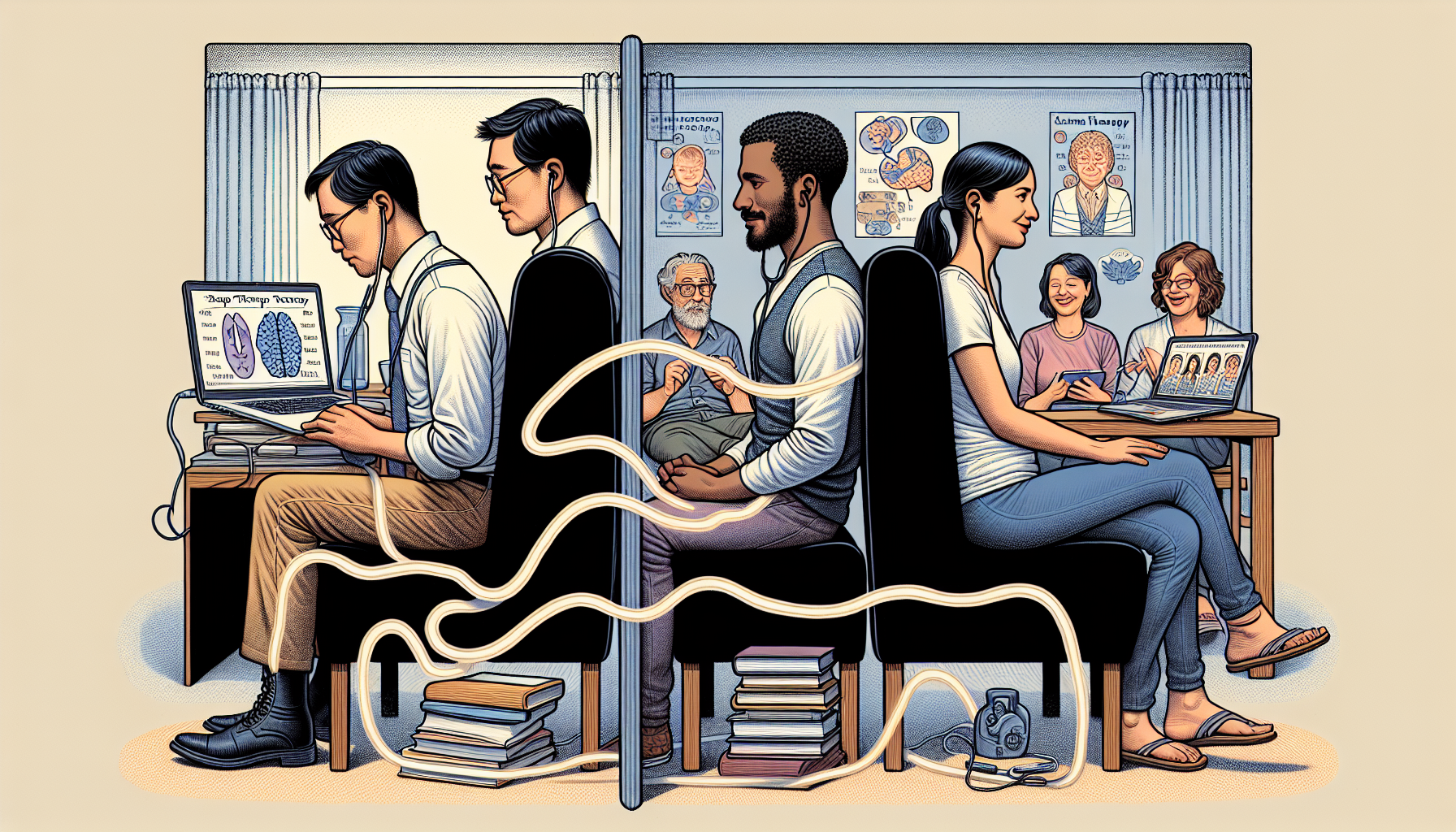
The Schema Therapy Training Center of New York, along with the Schema Therapy Institute Midwest and the Schema Therapy Institute Southeast, stands at the forefront of specialized training, offering tailored programs that cater to the unique needs of both individual and couples therapy. Each program is carefully crafted to align with the certification requirements set forth by the International Society of Schema Therapy (ISST), ensuring that therapists receive high-quality, comprehensive training.
Individual schema therapy training is delivered through a 40-hour workshop, which includes 13 sessions across four modules, satisfying the prerequisites for both Standard or Advanced Certification by the ISST. Conversely, couples schema therapy training unfolds over a 30-hour workshop and is comprised of 10 sessions across five modules, meeting the standards for Advanced Schema Couples Therapist Certification by the ISST.
These contrasting programs reflect the nuanced differences in therapeutic approaches required for treating individuals versus couples. Each has its own set of strategies, techniques, and objectives, tailored to address the specific challenges and dynamics of the respective therapy formats.
By offering these distinct pathways, the Schema Therapy Training Center of New York empowers therapists to transform your therapy practice and specialize in their areas of interest, equipping them with the knowledge and tools necessary to make a profound impact on their clients’ lives.
Schema Therapy for Individuals
The Schema Therapy for Individuals program offered by the Schema Therapy Training Center of New York is an immersive and introspective experience, commencing on September 12th. It is tailored to foster personal growth and self-reflection among participants. This training program is not just about acquiring knowledge; it’s a transformative journey that encourages therapists to:
- Explore their own schemas
- Learn to navigate those of their clients
- Hone the ability to recognize and restructure maladaptive patterns, coping styles, and thinking that hinder personal development.
The training delves into the intricacies of individual therapy, from identifying the root causes of clients’ emotional distress to employing a variety of techniques such as cognitive reframing, empathic confrontation, and experiential exercises. Through this process, therapists develop a deeper understanding of their clients’ inner worlds, enabling them to guide them towards healthier behaviors and a more fulfilling life.
The Schema Therapy for Individuals program is a testament to the commitment of the Schema Therapy Training Center of New York to provide an in-depth, nuanced approach to psychotherapy that fosters long-lasting change.
Schema Therapy for Couples
Schema Therapy for Couples is a specialized training program designed to equip therapists with the strategies and techniques necessary to treat difficult couples effectively.
Launching on September 18th, this program encompasses 10 sessions spread over five modules, each meticulously constructed to address the complexities of couples therapy.
The curriculum is expansive, covering:
- Assessment tools
- Therapeutic relationship strategies
- Intervention techniques
- Methods for consolidating change and preventing relapse.
Therapists embarking on this training will:
- Explore the emotional support systems within relationships
- Learn to navigate the intertwined schemas that often lie at the heart of couples’ challenges
- Emerge with a robust toolkit for fostering healthier relationships and promoting emotional connectedness between partners
The Schema Therapy Training Center of New York’s commitment to excellence is evident in the depth and breadth of the Schema Therapy for Couples program, offering a pathway to mastery in this specialized field to transform your therapy practice
Embracing Online Learning: Schema Therapy Training Center of New York’s Approach
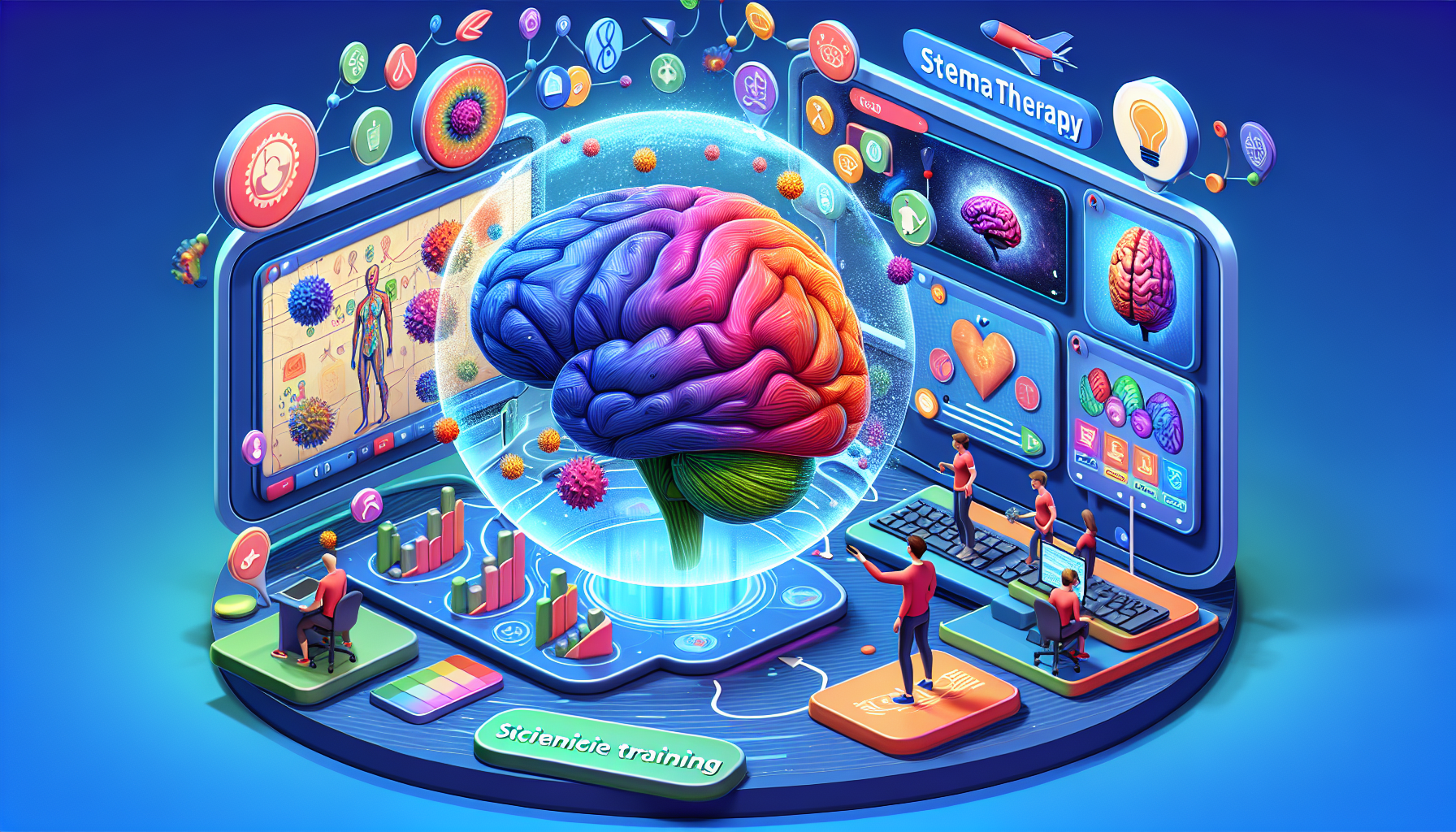
In today’s digital age, the Schema Therapy Training Center of New York embraces the advantages of online learning to offer an interactive and engaging platform for therapists worldwide. With a weekly modular format, these online courses provide the flexibility for therapists to learn at their own pace, accommodating their personal preferences and schedules. This modern approach to education allows for a tailored, science-backed learning experience, which includes video sessions, case studies, and simulation exercises, all designed to enhance the learning process and ensure the retention of knowledge.
The online learning platform offers:
- Convenience
- Opportunity to connect with an international community of therapists
- Expert guidance and comprehensive materials
- Deepening understanding of Schema Therapy
- Refining skills in both individual and couples therapy
- Virtual badges upon completion, celebrating each therapist’s progress and achievements
The Schema Therapy Training Center of New York’s commitment to innovation in training is exemplified by the use of online training techniques.
Celebrating Milestones and Achievements to Transform Your Therapy Practice
The journey through Schema Therapy training is marked by significant milestones, each one representing a step closer to mastery and the path to transform your therapy practice. The Schema Therapy Training Center of New York recognizes the importance of celebrating these accomplishments, and as such, has integrated a system of virtual badges and personalized notes to honor the completion of each module. These tokens of achievement not only provide a sense of progression but also inspire and motivate participants to continue their educational journey with enthusiasm and dedication.
The virtual badges serve as a visual reminder of the therapist’s growth and the accumulation of knowledge and skills that have been developed throughout the training program. Furthermore, the personalized notes add a touch of warmth and encouragement, reinforcing the Schema Therapy Training Center of New York’s philosophy that every step forward is a victory worth celebrating. As therapists navigate through the complexities of Schema Therapy, these milestones become a source of pride and a reflection of their commitment to bettering the lives of their clients.
The Welcome Package: Starting Your Schema Therapy Journey
The initiation of a therapist’s Schema Therapy training journey is an occasion of great significance, and the Schema Therapy Training Center of New York commemorates this milestone with a welcome package. This package serves not only as a gesture of appreciation but also as an introduction to the community and the wealth of resources that will support the therapist throughout their learning experience. It’s a symbol of the beginning of a transformative path that leads to professional and personal growth.
The welcome package embodies the center’s commitment to each therapist’s success, offering a tangible connection to the community of Schema Therapy practitioners and setting the stage for an enriching educational experience. As therapists embark on this journey, they are reminded that they are part of a larger movement—a collective of individuals dedicated to the pursuit of excellence in psychotherapy and the betterment of mental health care.
Connecting Theory to Practice: Real-World Applications of Schema Therapy to Help Transform Your Therapy Practice
Schema Therapy transcends the theoretical realm to make a tangible impact in the real world, particularly in the lives of individuals struggling with complex psychological issues. The therapeutic process involves confronting clients with their patterns and reasons for change, encouraging structured assignments outside of sessions to challenge negative beliefs and foster self-understanding. Through Schema Therapy, patients gain the tools to manage their emotional processes more effectively, leading to a more balanced and fulfilling life.
In therapy sessions, clients engage in a dynamic interplay of cognitive reframing, experiential exercises, and behavioral pattern alteration, all aimed at modifying Early Maladaptive Schemas and addressing core emotional needs. Schema Therapy’s real-world efficacy is reflected in the profound changes observed in clients as they navigate through their therapeutic journey, finding new pathways to emotional health and resilience.
The application of Schema Therapy in clinical settings demonstrates its power to facilitate deep, lasting change, offering a beacon of hope for those seeking to overcome psychological barriers.
From Theory to Therapy Room
Within the therapy room, Schema Therapy breathes life into theory through a potent mix of techniques tailored to meet the individual’s emotional needs. Some of these techniques to transform your therapy practice include:
- Cognitive reframing
- Guided imagery
- Empathic confrontation
- Behavioral pattern breaking worksheets
These techniques allow clients to reprocess and reframe traumatic experiences, counteracting unhelpful behaviors and thoughts that have been long ingrained. By engaging in these techniques, clients can objectively evaluate their distress and actively engage in adaptive behaviors guided by their ‘healthy adult mode’.
The therapeutic journey is enriched by experiential techniques such as:
- Letter writing, which provides clients with a medium to articulate the lessons learned during therapy to significant figures from their past.
- Imagery rescripting, which allows clients to visualize and rewrite traumatic or distressing memories.
- Chair work dialogues, which involve role-playing and engaging in conversations with different parts of oneself.
These techniques not merely transform the therapy room into a crucible for change but also empower clients to carry these skills into the world, fostering a healthier and more adaptive way of living.
The Impact of Schema Therapy on Personality Disorders
Schema Therapy has a particularly profound impact on the treatment of personality disorders, where its unique approach facilitates the transformation of deep-rooted patterns and schemas. It is especially adept at managing Borderline Personality Disorder (BPD), providing a structured yet flexible framework that addresses the complex interplay of behaviors, thoughts, and emotions inherent to the disorder. When administered in intensive group settings or through a combined modality of group and individual therapy, Schema Therapy has been shown to be highly effective in reducing psychological distress and fostering emotional regulation, significant advantages to help you transform your therapy practice.
The essence of Schema Therapy’s effectiveness lies in its ability to meet the core emotional needs that are often unmet in individuals with personality disorders. By focusing on the transformation of maladaptive schemas and engaging patients in a therapeutic alliance, Schema Therapy creates a space for healing and growth. The therapy’s emphasis on emotional needs and schema change provides a pathway for patients to develop healthier relationships with themselves and others, leading to more fulfilling lives and a greater sense of well-being.
Engaging with the Schema Therapy Community
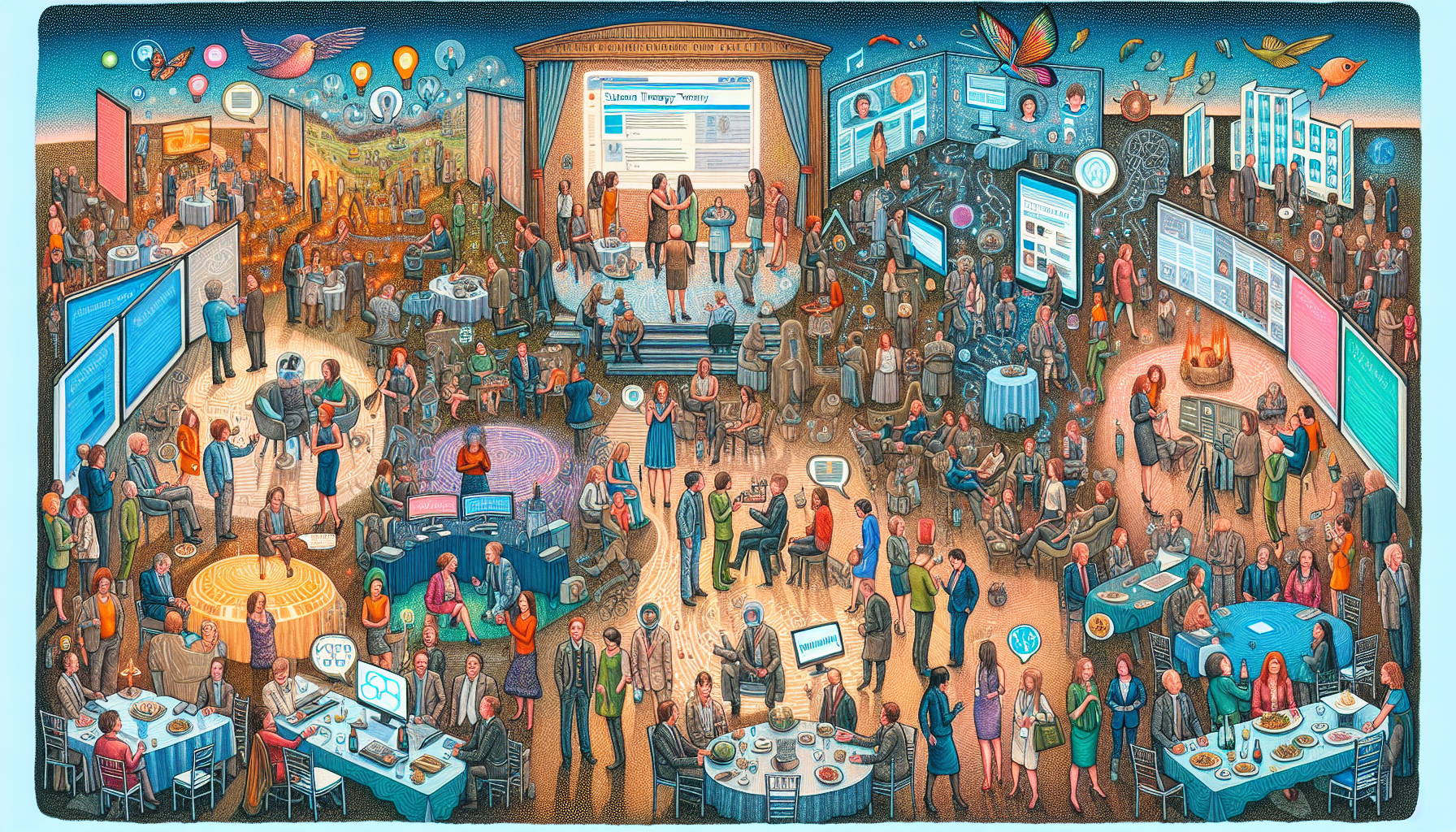
The Schema Therapy Training Center of New York is deeply committed to fostering a sense of community among therapists, recognizing that growth and learning are amplified through shared experiences and collective wisdom. By offering small-sized workshops and a variety of tools and resources as part of the welcome package, the center ensures that each therapist receives individualized attention and support throughout their training. This nurturing environment extends beyond the classroom, as therapists are encouraged to engage with peers and mentors through online discussion forums, forming a network of support that spans the globe.
These forums serve as a vibrant platform where schema therapists and those who have undergone schema therapy can come together to share experiences, discuss the impact of Schema Therapy on their lives, and seek advice on managing challenging cases. By engaging with the community, therapists can continue to refine their skills, stay abreast of the latest developments in the field, and contribute to the ongoing evolution of Schema Therapy.
The collective energy and passion of the Schema Therapy community are a testament to the transformative power of this therapeutic approach and the unifying spirit that drives its practitioners as they help transform your therapy practice.
Join the Conversation to Transform Your Therapy Practice
To further engage with the vibrant community of schema therapists, individuals can:
- Subscribe to the Schema Therapy Training Center of New York’s YouTube channel
- Access a wealth of content, from educational webinars to inspiring testimonials
- Deepen their understanding of Schema Therapy
The International Society of Schema Therapy (ISST) also provides ample opportunities for therapists to connect through resources like webinars, a bulletin, and special interest groups, fostering a sense of belonging and professional development.
Participation doesn’t end with subscription; it flourishes through active engagement with the channel’s content by liking, sharing, and contributing to the dialogue through comments. These interactions enhance the individual’s learning experience and create a ripple effect, spreading the insights and benefits of Schema Therapy to a wider audience. As a schema therapy clinician, you can transform your therapy practice.
As therapists and clients alike share their defining moments and ‘lifetraps,’ they build a supportive network that embodies the collaborative spirit of the Schema Therapy community.
Expanding Your Professional Network
The upcoming INSPIRE 2024 conference, set to take place in Warsaw, Poland, from May 30 to June 1, 2024, offers a prime opportunity for schema therapists to expand their professional network. This hybrid event aims to enhance the practice of Schema Therapy by integrating innovative techniques from positive psychology and body-focused interventions, paving the way for new horizons in therapeutic practice. For therapists seeking to connect with like-minded professionals, INSPIRE 2024 is an invaluable platform to network, exchange ideas, and strengthen the healthy modes in their professional practice.
Attending such conferences offers several benefits to help transform your therapy practice, including:
- Broadening one’s professional connections
- Invigorating one’s passion for the field
- Sharing experiences and insights with therapists from around the world
- Celebrating the collective achievements of the Schema Therapy community
- Finding inspiration to continue professional growth and contribute to the evolution of psychotherapy.
Step-by-Step Guide to Applying for Schema Therapy Training
Applying for Schema Therapy training is straightforward, yet it requires careful consideration to select the program that best aligns with one’s professional goals and interests. The Schema Therapy Training Center of New York offers a range of individual and couples schema therapy sessions, with programs beginning on September 12th and September 18th, respectively. Applicants can choose between the Fall 2024 or Spring 2025 sessions, providing flexibility to accommodate various schedules and commitments.
To embark on this journey, applicants must navigate the Schema Therapy Training Center of New York’s online application system, select their desired program, and enroll in the appropriate session. This step-by-step process ensures that therapists are on the right track toward gaining the knowledge and skills necessary to become proficient in Schema Therapy. With each program specially designed to meet the ISST certification requirements, therapists can confidently pursue their training, knowing their efforts will culminate in a recognized certification that can significantly advance their careers.
Summary: How Schema Therapy Can Transform Your Therapy Practice
In conclusion, Schema Therapy is a multifaceted therapeutic approach that profoundly benefits therapists and clients. This guide has walked you through the essentials of Schema Therapy, from its foundational theories to advanced techniques and the journey to becoming a certified Schema Therapist. Embracing online learning through the Schema Therapy Training Center of New York opens up opportunities for personal growth and professional development to help transform your therapy practice. Real-world applications of Schema Therapy have demonstrated its effectiveness, particularly in treating personality disorders, and engaging with the Schema Therapy community enriches the experience further, fostering a sense of unity and shared purpose.
As you consider applying for Schema Therapy training, remember that each step in this journey is a building block towards a fulfilling career in psychotherapy. The Schema Therapy Training Center of New York’s comprehensive programs, supportive community, and celebration of milestones will accompany you as you navigate this transformative path. Let the knowledge and insights shared here inspire you to take the next step towards mastering Schema Therapy and making a lasting impact in the lives of those you serve.
Frequently Asked Questions to Transform Your Therapy Practice
What is Schema Therapy?
Schema Therapy is a type of psychotherapy that integrates elements from cognitive-behavioral therapy, attachment theory, and emotion-focused therapy. It aims to help individuals understand and change deeply ingrained behavioral patterns by addressing core emotional needs and schemas.
What will you learn in the online training programs?
You will learn about key milestones and defining moments in Schema Therapy, advanced techniques, real-world applications, and the process of becoming a certified Schema Therapist in the online training programs at the Schema Therapy Training Center of New York.
When do the upcoming programs for Schema Therapy start?
The upcoming programs for Schema Therapy start on September 12th for individuals and on September 18th for couples.
What are the benefits of joining the online programs?
Joining online programs offers expert guidance, comprehensive resources, a global therapist community, and the chance to earn prestigious ISST certification. These programs provide valuable support and networking opportunities for participants.
How can you engage with the content?
You can engage with the content by subscribing to the YouTube channel, liking and sharing videos, and participating in the dialogue in the comments section. This can enhance your learning experience and contribute to the community.







